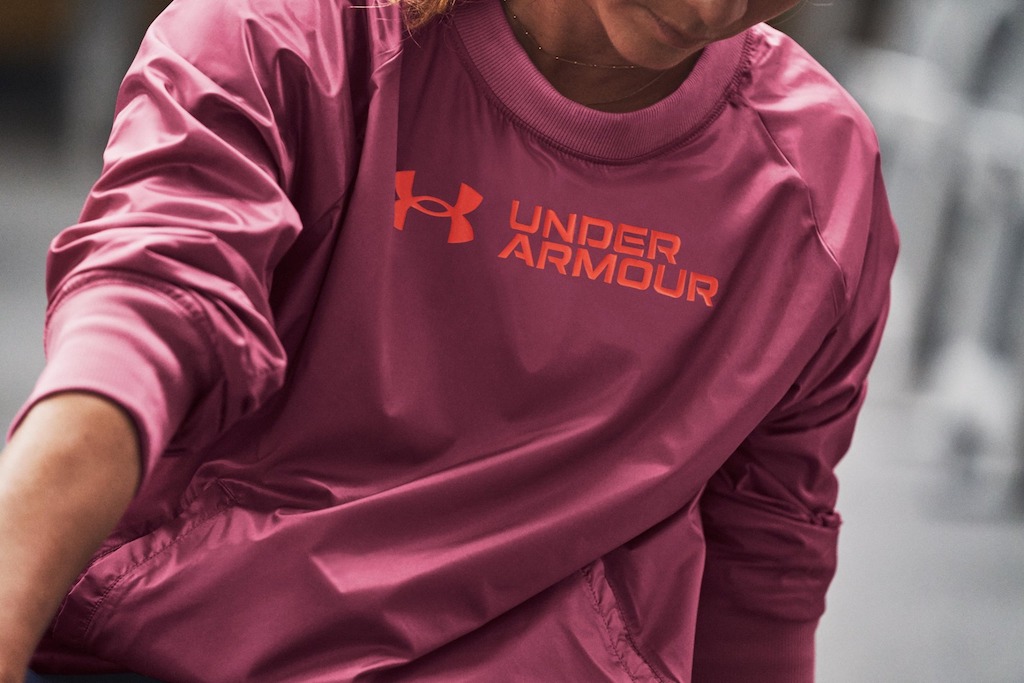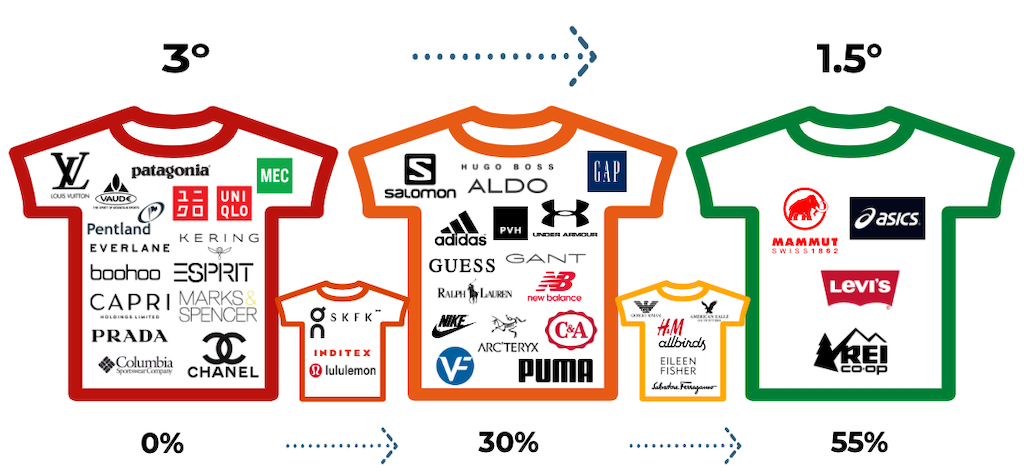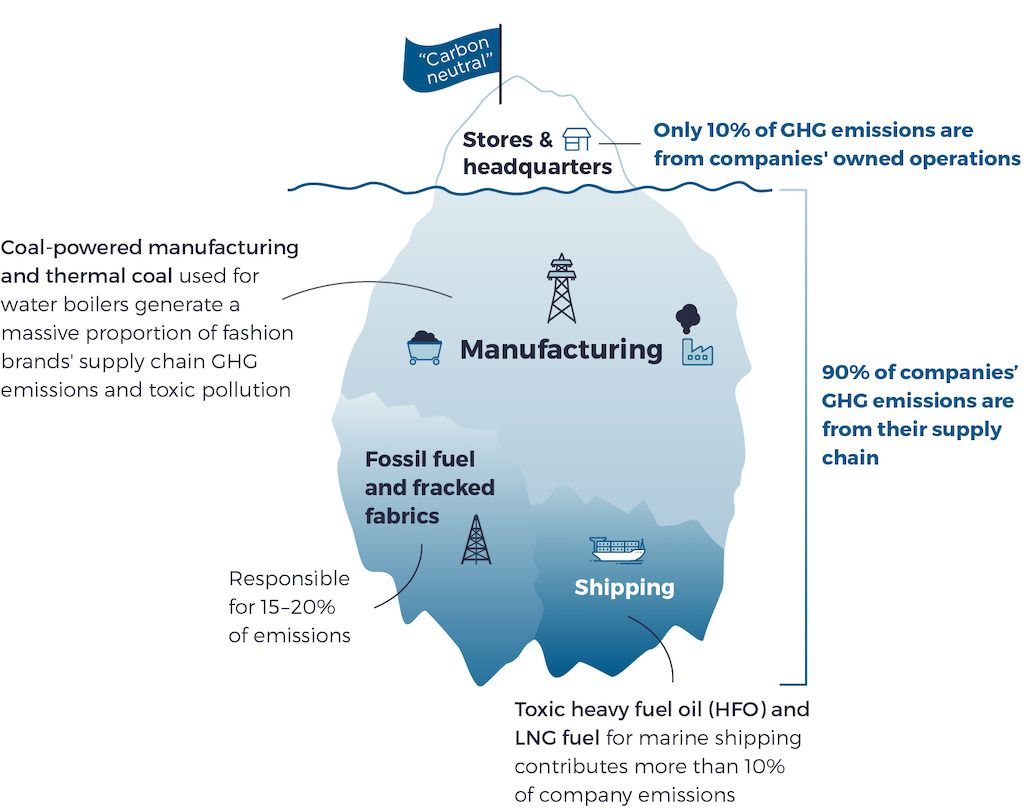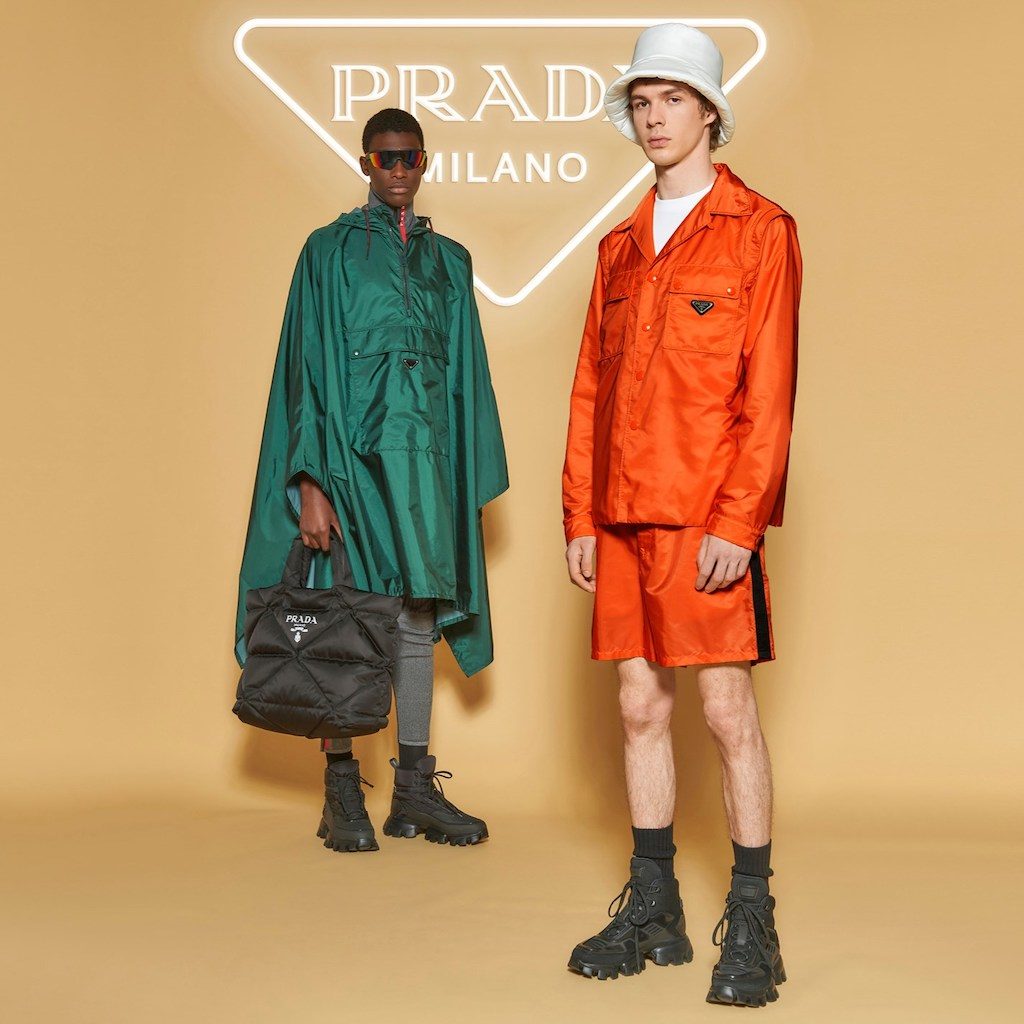5 Mins Read
Three-quarters of leading fashion and apparel companies have been given an “F” grade for their efforts to switch to clean energy in a new sustainability index. Ranking 47 of the top brands on the market in its Fossil-Free Fashion Scorecard, environmental NGO Stand.earth named industry giants like Under Armour, Prada, and Lululemon among some of the worst offenders.
In a new report published by US grassroots environmental nonprofit Stand.earth, fashion brands such as Lululemon, LVMH, and Prada were named among some of the worst performers in terms of their climate action efforts. Examining 47 global brands on the market, the Fossil-Free Fashion Scorecard gave 35 companies an “F” grade for energy efficiency and transition to clean energy across their supply chains.
Stand.earth researchers also investigated companies’ use of fossil fuel-based synthetic materials, such as polyester, as well as their public record on setting emissions reduction targets. For brands’ overall grade, which averages out performance across different categories, researchers gave 20 companies an “F” score, 17 labels a “D” score, 9 were graded “C” and just one, Mammut, a “B-”.

Fossil fuels still dominate fashion
The latest benchmark, which builds on the NGO’s previous scorecard index in 2019, finds that despite growing climate awareness and calls for action, little has been done to transform the industry into one that is consistent with a zero-carbon economy.
Globally, the fashion industry is estimated to drive anywhere between 5-10% of global GHG emissions—far more than that of the aviation sector, which comparatively is responsible for 2%.
“In the wake of a global pandemic that reinforced growing public demand for strong action to curb the climate crisis and protect public health, fashion brands are at a critical crossroads,” wrote the authors of the report.
“The fashion industry continues to rely heavily on coal to power the manufacturing of its products, contributing to rising climate emissions and deadly air pollution in countries, such as Vietnam and Bangladesh, where its supply chain is concentrated.”

In the scorecard, only three brands—Asics, Mammut and REI—have set out commitments to slash their GHG emissions across their entire value chain by at least 50% or more, by 2030. Shockingly, the report found that with the exception of Burberry, Allbirds, American Eagle, H&M, and Levi’s, all other companies examined had set their emission targets at 30% or lower.
75% score ‘F’ on clean energy
While publicly committing to decarbonisation, many brands continue to ignore the GHG emissions produced by their fossil fuel-reliant supply chain, the ranking finds. In the scorecard, three-quarters of all fashion and apparel companies scored an “F” grade when it came to driving renewable energy in their supply chain, outside of their own operations.
Shipping emissions, for instance, often account for far more GHG emissions than brands’ own Scope 1 emissions, yet is an area being ignored by two-thirds of the brands examined in the report.

Only six out of the 47 have begun deploying renewables in their supply chain, among them Asics, Levi’s, Mammut, Nike, Puma, and VF, with the first five brands scoring a “C” grade while VF scored “C-”. Of this group, only Asics reported that it has ended on-site coal burning across all its Tier 1 supplier facilities, while the other brands have made various commitments to phase out coal by the 2030 deadline.
The failure on the part of most brands to shift to renewables, however, isn’t a smart move, according to researchers at Stand.earth. Not only will it hamper the world’s much-needed transition into a zero-carbon economy to avoid the worst consequences of climate change, it will pose “significant reputational and investor risk, with both consumers and shareholders increasingly demanding corporate action to cut down emissions in line with the Paris Accord.”
“Climate science has made it abundantly clear that the fashion industry’s business-as-usual reliance on fossil fuels is not consistent with a climate-safe future,” the report added.

Prevalence of synthetic fibres and greenwashing
Stand.earth’s benchmark also highlighted the prevalence of fossil fuel-based materials in the industry, in spite of brands’ public pledges to slash their carbon footprint and tackle waste.
“Fashion brands are driving demand for fracked fibers such as polyester, which are derived from fossil fuel feedstocks, and whose production is associated with significantly greater emissions compared to plant-based fabrics such as cotton,” says Stand.earth.
Only two brands out of the 47 scored above a “C” grade in terms of low-carbon materials, with Vaude and Eileen Fisher scoring “B+” and “B-” respectively. The worst-performing brands, on the other hand, featured brands ranging from luxury labels to fast fashion giants, among them Chanel, Lululemon, Prada, M&S, Primark, LVMH, Gap and Ferragamo—all of whom were graded “F”.

These findings are in line with previous reports. In July, a separate report by Changing Markets Foundation called out brands like Boohoo, whose collection is made up of 85% synthetic materials that require petrochemicals in production. Overall, the researchers estimated that nearly 60% of all “green” material claims by leading fashion brands amounted to greenwashing.
Stand.earth similarly pointed out the “false impression” that brands are making by using “increasingly popular buzzwords” such as climate positive or carbon neutral, when in reality, many of their claims are not backed up by evidence of emissions reduction targets or quantifiable changes to the way they source materials, make or transport products.
One instance, according to the report, is Ralph Lauren, who has “committed to a “net zero” target by 2040 by largely relying on “carbon credits” and “nature-based carbon removal” but has not set a renewable energy target for its manufacturing.”
Lead image courtesy of Pexels.




